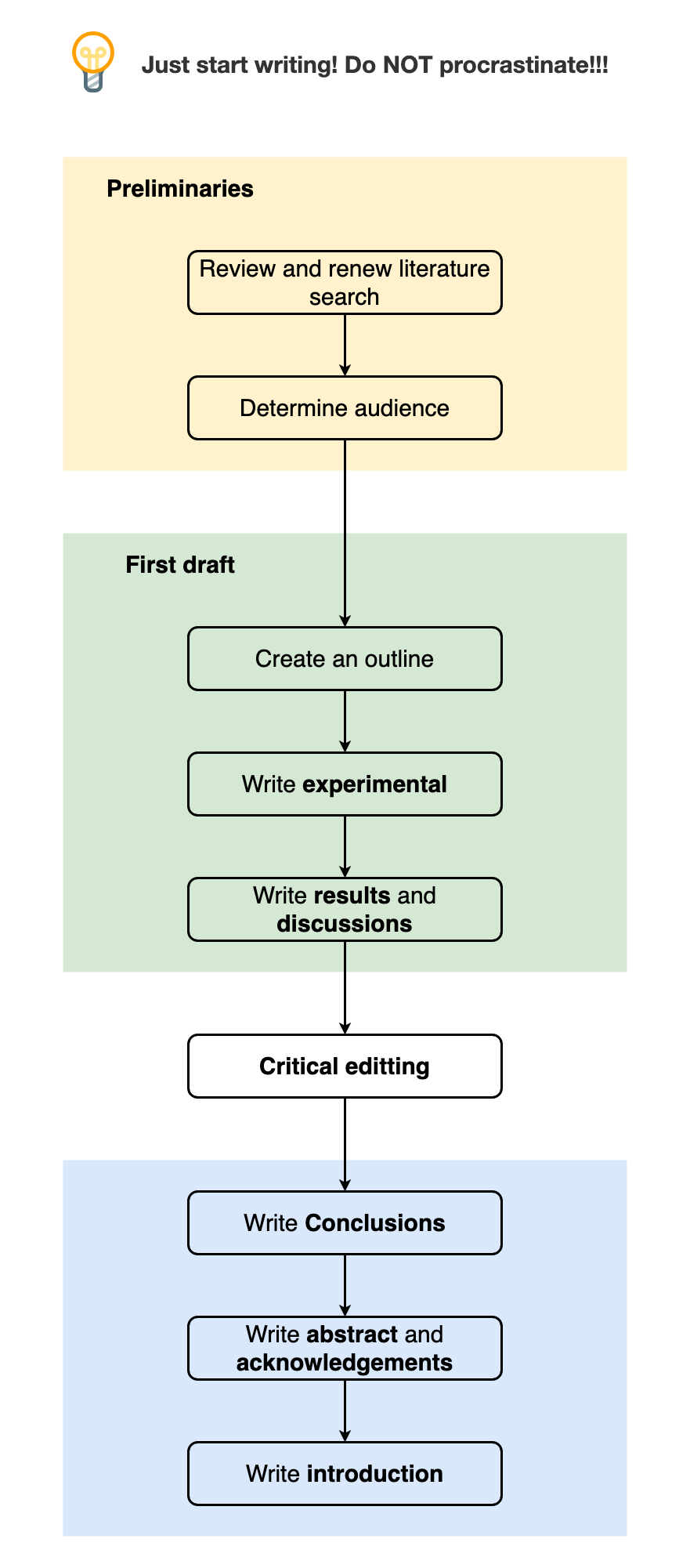How to Write Papers Efficiently?

Preliminaries
- Review and renew your literature search
- Determine who your audience is
- What kind of paper is it? Research, review, tutorial?
- What journal is it intended for?
- Undergraduates, researchers, but always the reviewers!
The “Algorithm”
💡 Just get started. Do NOT procrastinate! 💪
First draft
Writing the initial draft is the creative part of the job. Your job now is to produce a complete first draft, NOT a perfect first draft. Editing is a second stage of the work. It is the critical thinking, analytical part of the job. Editing before you’ve completed your first draft is a waste of time!
So just write, don’t stop and edit!
Create an outline and always work from it
- If you have to stop, you can easily pick up the writing later.
- How?
- Make a list of your figures and tables
- Put them in order of presenation, arrange them in some logical sequence, as they may appear in the results and discussion
Begin with the Experimental section
- The easiest part to write, because this is the part you’re most familiar with (You’ve done the experiment, you know how is it done)
- Getting it done will give you a feeling of progress
Write the Results and Discussion, following the outline (list of figures and tables)
Critical editting
- The critical part is when you convert that into concise and coherent English and make sure that the science that you’ve written is correct.
Complete the paper
Write the Conclusions (in a numbered format)
Write the Abstracts and Acknowledgements
Write the Introduction (the hardest part of the paper)
- Why was the study done? what is its purpose?
- You need to collect the relenant essential background information and put that together in the introduction. You need to give the readers a sufficient background to understand what you did
Reference
🔥👍 How to Write a Paper in a Weekend (By Prof. Pete Carr)
🔥👍 如何快速写作论文初稿?